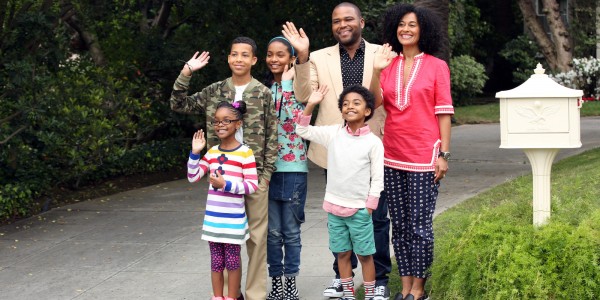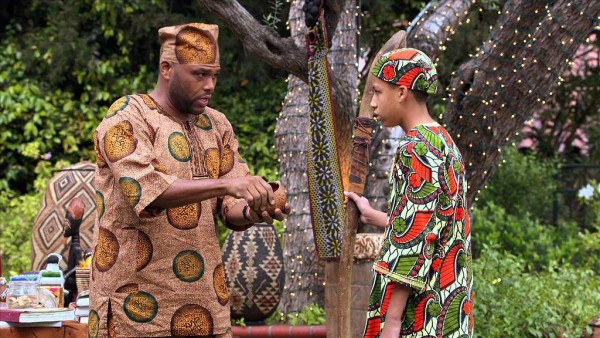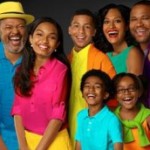We’re not as far apart as we sometimes think we are. I’m struck by this every time I go to our local mall. There I see black shoppers and white shoppers, women in hijab, women in saris, people from Korea and people from Japan, Jewish folk, Christian folk, nothing-much-folk.
Nobody wants to fight. They just want good deals at The Gap.
America is where racial, ethnic, and religious strife comes to fade away. Sure, we may have our tensions, but they do not end in a sidewalk bomb or a shooting war.
I think that despite our very real tension between white and black in America, in the end, everyone wants the same things: To be treated with dignity, to have opportunity, and to raise children in peace and prosperity.
Which is why I really enjoyed the season opener of Black-ish and hope the show lives up to its promise.
Anthony Anderson plays André Johnson, a dad and husband who is living the American Dream. He works for an advertising firm and is moving up the ladder there. His surgeon wife (Tracee Elis Ross) is a typical working mom: Busy, direct, unshakable. The family lives in a large, nice home in a leafy, nice suburb of Los Angeles. It’s not a black neighborhood. In fact, the pilot seems to imply it’s mostly white.
The trouble comes when André starts to feel, with the constant needling of his father (Laurence Fishburne) that his family is losing their black identity. He can’t let that happen. But first, he’s got to figure out what his own black identity is.
All of this takes some pretty silly paths: An African coming of age ceremony with a miserable 13 year old and some questionable African clothes.
But the silliness does beg the question: What is “Black” besides just “not white?” Is it “urban” or “African” or “hip-hop?” And who gets to decide?
One thing I liked about the show is that the characters have a backstory of their thoughts about race. André chose to work in a mainstream firm, not a black firm, because he wanted to break down barriers. He’s made choices in the past that have led him here, choices I’d personally like to know more about. I like that the characters talk about their own inter-African-American (to coin a phrase) concepts of race. Is Mrs. Johnson less black because she’s more mixed blood? Who decides that?
Pilots necessarily paint in big strokes and this pilot staked out its territory from the first frames. In the opening sequence, André imagines a tour bus pointing out his family like specimens in a zoo: The noble, beautiful, successful black family. Some of the brushstrokes are a little clumsy: Why write that his black son wants a bar-mitzvah? It’s almost a cliche trope for teen identity crisis.
On the other hand, however, those broad strokes leave the audience wanting to know more about the characters and setting. Why is Mrs. Johnson named Rainbow? Is she a product of free-love hippy culture? Are there any other races in Los Angeles than black and white (I’ve heard there are)? What differentiates André’s honorary-black white assistant from his white-privilige white colleague?
And is it ok to say “black” now? Was there a memo?
Ultimately, Black-ish promises several things:
It opens a conversation with humor about what we want and where we are going, not just as black or white, but as a country that has to, indeed is privileged to, live together. It points out that we all, black, white, brown, or other, have a human tendency to take ourselves way too seriously.
For the first time in a long, long time (*Cough, cough..Cosbys*), it gives us a sitcom that appeals to both black and white audiences. Viewership is so fragmented, it’s almost a public service to bring people of different demographic segments to the same show.
Finally, as André himself points out, ethnic identity is important. But there are things that are more important than focusing merely on race. Things we all share like family and justice and disappointment in our children’s sports choices.
I’ll be watching more Black-ish and blogging each episode. I’d love you to join me.
Update: Here are my thoughts on later episodes:
Episode Two: The Talk. In which both parents try to connect with teens. Not my favorite episode. (Because of S.E.X.)
Episode Three: The Nod. In which Dre tries to instill in his son the special bond all black men share. Does not end well.
Episode Four: Crazy Mom. In which Dre takes over child duties from Bow. And succeeds. But not in a good way.














